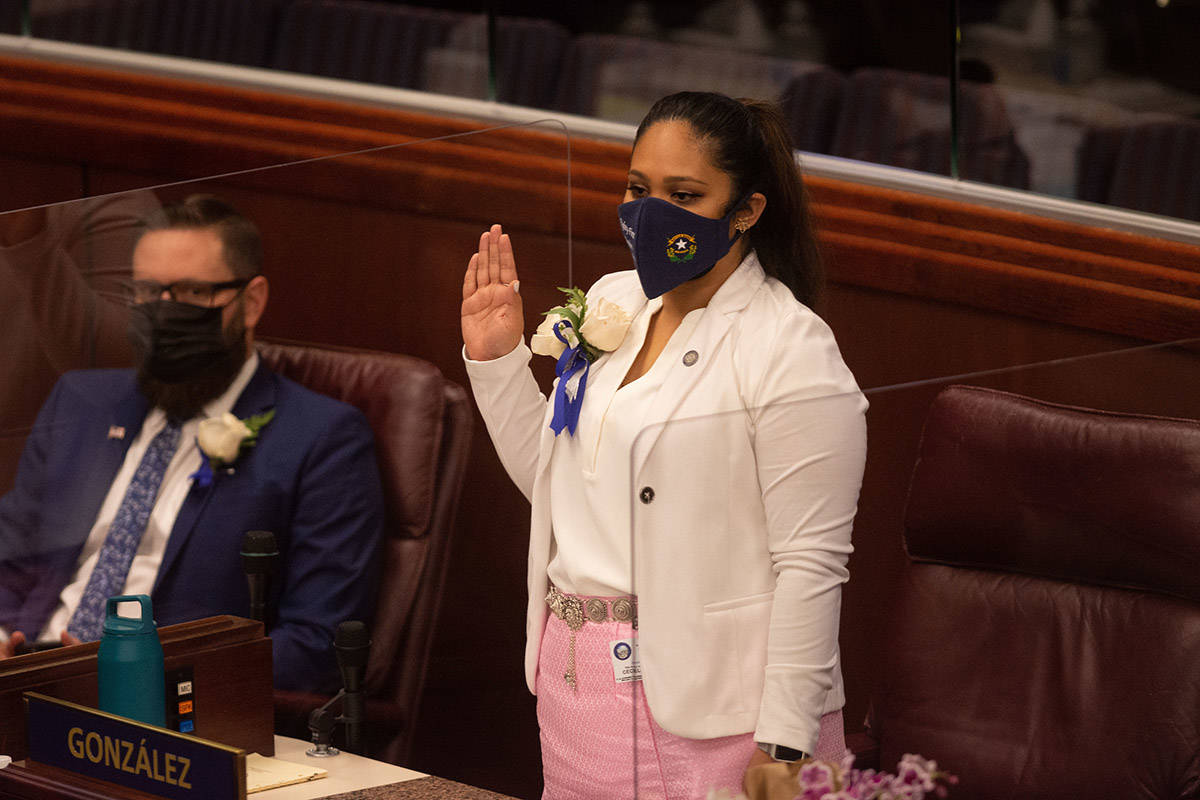Sisolak, others sued over Nevada COVID restrictions

A group of Nevada lobbyists filed a federal lawsuit Wednesday, alleging that prohibiting members of the public from attending legislative sessions during the pandemic violates their constitutional rights.
As COVID-19 spread, eventually leaving more than 4,700 people dead in Nevada, members of the public were restricted from attending a pair of legislative sessions last year. They also were prohibited from entering the state Capitol at the start of the 2021 session.
But four conservative lobbyists — Shawn Meehan, Janine Hansen, Lynn Chapman and Melissa Clement — are asking a judge to allow them to do their jobs. The complaint names Gov. Steve Sisolak, Attorney General Aaron Ford, Senate Majority Leader Nicole Cannizzaro and Brenda Erdoes, director of the Legislative Counsel Bureau.
“Defendants declaration of a State of Emergency in March 2020, is no longer an emergency eleven months later,” attorney Sigal Chattah wrote in the lawsuit. “Defendants have continued to utilize the Emergency Directives to preclude lobbyist and the public from the State Capital to further their political agendas behind closed doors.”
The complaint cites the U.S. and Nevada Constitutions, which protect open meetings and free speech, calling Sisolak’s ongoing directives “arbitrary and capricious, and not supported by substantial evidence.”
Erdoes and representatives for the governor and attorney general declined to comment on the lawsuit. Cannizzaro could not be reached Wednesday.
Under Nevada law, a lobbyist must register with the Legislative Counsel Bureau before appearing inside the Capitol building.
This year, however, lawmakers are considering a bill that expands the definition of a lobbyist subject to the registration requirements. Under the proposal, which would not require in-person appearances, a lobbyist is defined as anyone who “communicates directly with a member of the Legislative Branch on behalf of someone other than himself or herself to influence legislative action, whether or not any compensation is received for the communication.”
Chattah wrote in the lawsuit that emergency directives restricting access to lawmakers “plainly violate” constitutional rights to free speech and to petition the government.
Lobbyists can email, text, videoconference and telephone lawmakers, or approach them in person outside the confines of the legislative building in Carson City.
Allowing the restrictions to continue would mean that the plaintiffs “will be fearful of exercising their right to lobby,” Chattah wrote, adding that closed-door sessions were “quashing the spirit and purpose of a constitutional legislative process.”
“As well-intentioned as these Orders and Emergency Directives are with respect to the general public’s health, safety and welfare, they have come at a steep price with respect to the complete and utter restraint on Nevadans’ civil rights and liberties.”
Contact David Ferrara at dferrara@reviewjournal.com or 702-380-1039. Follow @randompoker on Twitter.